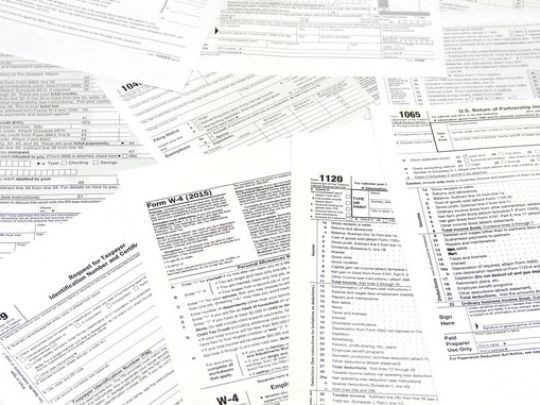NMPF Works to Ensure New Tax Law Benefits Farmers, Cooperatives
January 5, 2018
 After working intently to shape the final tax cut legislation adopted by Congress shortly before Christmas, NMPF said the measure provides several important benefits for farmers and their cooperatives. NMPF had worked closely with House and Senate members on the once-in-a-generation tax package to achieve a positive outcome for the dairy community.
After working intently to shape the final tax cut legislation adopted by Congress shortly before Christmas, NMPF said the measure provides several important benefits for farmers and their cooperatives. NMPF had worked closely with House and Senate members on the once-in-a-generation tax package to achieve a positive outcome for the dairy community.
NMPF, along with the National Council of Farmer Cooperatives and others, urged lawmakers to preserve the economic value represented by the Section 199 deduction, which was eliminated as part of the tax package’s deep cut in corporate tax rates. The final compromise to address the loss of Section 199 will help protect farmer-owned businesses from a major tax increase at a time when America’s farm sector is struggling with low commodity prices and reduced incomes.
Also known as the Domestic Production Activities Deduction (DPAD), this important provision of the tax code applied to proceeds from agricultural products marketed through cooperatives, making the Section 199 an important means of reducing taxation for farmers and cooperatives alike. Cooperatives have passed the vast majority of the benefit to their farmer owners, and reinvested the remainder in infrastructure improvements for the processing and marketing of food products.
The final tax package repeals the DPAD, but the legislation allows cooperative members to claim a new 20-percent deduction on payments from a farmer cooperative. Cooperatives also will be able to claim the 20-percent deduction on gross income less payments to patrons, limited to the greater of 50 percent of wages or 25 percent of wages plus 2.5 percent of the cooperative’s investment in property.
In addition to the Section 199 issue, NMPF worked on several other components of the legislation of importance to the dairy sector, including:
- Depreciation. The bill would allow farms and other businesses to immediately write off 100 percent of qualified property costs through 2022. Current law allows businesses a 50 percent write-off for 2017, which decreases in the coming years.
- Expensing. The final bill expands the Section 179 provision made permanent by the PATH Act of 2015, thanks to NMPF’s support. The bill would adjust the maximum allowance from $500,000 to $1 million, which would revert back to $500,000 when the value of property put into service surpasses $2.5 million.
- Estate Tax Relief. NMPF has actively supported giving farmers additional relief from the federal estate tax, which taxes the transfer of farms between generations of family members. The final bill makes important progress on this issue, doubling the existing exemption to $11 million for individuals and $22 million for couples. Importantly, the package also preserves a full stepped-up basis for inherited property, avoiding what could have been another tax increase to offset reducing the estate tax.
- Interest Deductibility. The bill attempts to preserve the business interest deduction for most farmers. The package allows farms with less than $25 million in average annual gross receipts for the three prior taxable years to continue to deduct interest expenses.
- Cash Accounting. The package would continue to allow farms to use cash accounting.
- Like-Kind Exchanges. The bill would limit the use of Section 1031 like-kind exchanges to real property, removing their use for equipment.
- Environmental Stewardship. The bill allows the Section 48 Investment Tax Credit for solar energy to phase down after several more years, per the PATH Act of 2015, and does not renew Section 48 for any additional technologies. Therefore, the Agriculture Environmental Stewardship Act to expand Section 48 to cover nutrient recovery systems and digesters was unfortunately not incorporated into the bill. NMPF will seek other legislative opportunities to address this issue over the coming months.
NMPF expressed thanks to Sens. John Hoeven (R-ND) and John Thune (R-SD), as well as multiple House members, including Agriculture Committee Chairman Mike Conaway (R-TX), whose determined efforts to compensate for the loss of Section 199 will help prevent a higher tax bill for cooperatives and avert the loss of economic activity in rural communities that these businesses help generate.
“NMPF believes that this provision, plus components of the bill that increase exemption levels from the federal estate tax, enhance depreciation and expensing opportunities for producers, and preserve farmers’ ability to deduct interest expenses, should help farmers and cooperatives alike,” said NMPF President and CEO Jim Mulhern. “The compromise advanced by Sens. Hoeven and Thune recognizes that farmer cooperatives play an indispensable role in our nation’s economy and need to be treated fairly in the tax reform legislation.”






